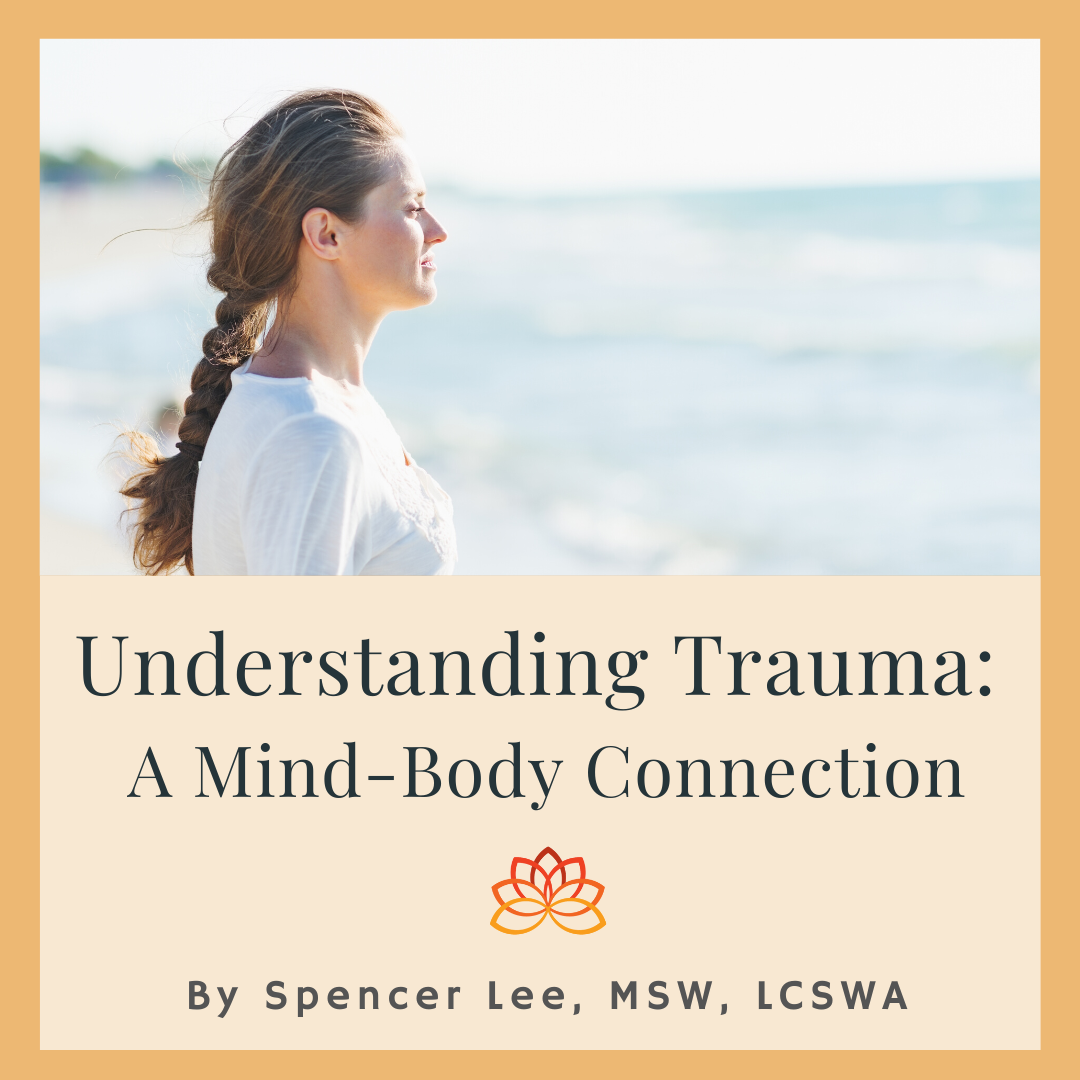Understanding Trauma
by Spencer Lee, LCSWA
What is Trauma?
The American Psychological Association defines trauma as an emotional response to a terrible or disturbing event. I like to see trauma as any negative experience that currently affects the way you think, feel, or interact within the world. This can be anything from a car accident to experiencing a natural disaster, or living in an abusive relationship.
Trauma is common. The U.S. Department of Veterans Affairs has found that 12 million adults in the U.S.live with Posttraumatic Stress Disorder (PTSD) in a given year and that 6% of the population will develop PTSD at some point during their lifetime. To further put this statistic into perspective, PTSD makes up a small proportion of the various forms of trauma. Trauma is also different for everyone. Sometimes we are surprised with our ability to navigate certain situations and others we find ourselves feeling much more affected than we anticipated.
When you suffer a cut or wound, what do you do? Well there are two options. Option 1 is you “rub some dirt on it” and go about your life. Sometimes this works out, and other times, we see the wound turns into an infection- it’s painful and starts to affect how you move about everyday life. Option 2 is to clean out the wound and sew it up properly. It takes a little more time but prevents infection in the long term.
Trauma works in the same way as physical wounds- not only are our minds, but also our bodies affected by traumatic events. And it is only by cleaning the wound and closing it back up that we can fully heal. Without this process, the wound festers and starts to impact us negatively down the road.
Trauma as a Mind-body Experience
Trauma is a mind-body experience. If we take a car accident for example, the body experiences a rush of adrenaline, increased heart rate, sweating, and maybe even nausea. The body is preparing and protecting itself from the danger. In the same scenario, the mind may be jumping to thoughts of physical health, impact of the accident on finances, feelings of shame or guilt surrounding the accident.
The University of the Arts separates our responses to trauma as physical and emotional. Physical responses can include: fatigue, headaches, hyperarousal, and even gastrointestinal problems. Emotional manifestations of trauma can include anything from fear and anxiety to dissociation and feeling numb.
Reactions to trauma are not always easy to spot in ourselves or others. Researchers have found four common “trauma responses” and defined how they may appear in daily life. These responses occur automatically as part of our body’s response to danger; however, sometimes we keep these responses on when the danger is no longer present which can cause problems moving forward.

Healing Trauma
Research has shown that psychotherapy is the most effective way we can clean out, sew up and heal our trauma. Therapy helps us identify trauma responses that are still on when danger is no longer there. Therapy helps us turn off those responses and get back into a feeling of safety and normalcy.
Some of the most effective therapeutic interventions for trauma are CBT, EMDR, TF-CBT, and Somatic Experiencing. Therapies like cognitive behavioral therapy (CBT) and trauma-focused cognitive behavioral therapy (TF-CBT) are based on resolving the emotional effects of trauma through processing beliefs learned from trauma and replacing them with more accurate, helpful beliefs. For some, this mind-approach is healing and people experience a reduction in their trauma symptoms, while others may say they still feel “stuck”. This is often due to trauma that is stored in the body.
Therapies such as somatic experiencing and eye movement desensitization and reprocessing (EMDR) take a body-focused approach to trauma by identifying where the body is stuck and using tools and coping mechanisms to release this stored trauma. These therapies often incorporate skills used to regulate the stress response system to keep both the mind and body calm.
Therapist and founder of Stillpoint Counseling and Wellness, Jessica King, is hosting an ongoing “Heal the Body, Heal the Mind” workshop focusing on reshaping the nervous system to improve our ability to connect with others and our environment safely. This workshop is open meaning you can attend as little as one or as many as all sessions! Visit the link to read more about the group and how trauma, healing, and the body intertwine.
